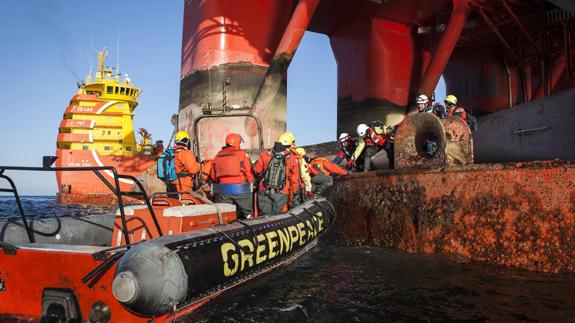
STATOIL: DRILLING DISAPPOINTING

Norway's Statoil said Friday a drilling campaign around the Johan Castberg field in the Barents Sea had discovered less oil than expected, and that it is considering cheaper infrastructure options.
"We are working steadily to reduce the costs of the existing project, and are also studying an alternative project, a floating production and storage unit," Statoil spokesman Ørjan Heradstveit told The Wall Street Journal. Such a unit would likely prove cheaper than the existing plan to build an onshore oil terminal.
Statoil said it had discovered between 42 million and 54 million barrels of recoverable crude oil in Drivis, the fifth and final well drilled during a one-year campaign aimed at increasing the profitability of the Johan Castberg project. The campaign has now ended with only two out of five wells resulting in oil discoveries.
"The exploration program as a whole has not delivered on volume expectations," said Irene Rummelhoff, Statoil's senior vice president for exploration on the Norwegian continental shelf.
Statoil's original plan was to pipe oil from Johan Castberg, still estimated to hold between 400 million and 600 million barrels, to an onshore terminal in northern Veidnes, to create an Arctic oil hub capable of handling the oil flow from potential future fields in the little-explored Barents Sea.
But rising costs, lower resource estimates and a tax change led Statoil and its partners last year to delay the Johan Castberg investment decision.
DNB analyst Helge Andre Martinsen said the Barents Sea drilling campaign had been "a big disappointment." The Drivis discovery was likely big enough to be profitably produced, he said, but it was "rather doubtful" that it would support the further development of Johan Castberg with an expensive pipeline and onshore terminal.
If Statoil finds it too expensive to build an Arctic oil hub, "we'll have to accept it, of course," said Oskar Jarle Grimstad, a member of the Norwegian parliament for the ruling Progress Party. "But it's no big secret that there is a strong wish" for a solution providing more mainland jobs, he said, "we owe that to the northern part of the country."
Operator Statoil owns 50% of the Johan Castberg license. Eni SpA holds 30% and state-owned Petoro 20%.
wsj.com





